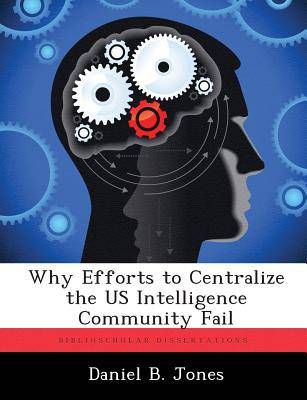
Door een staking bij bpost kan je online bestelling op dit moment iets langer onderweg zijn dan voorzien. Dringend iets nodig? Onze winkels ontvangen jou met open armen!
- Afhalen na 1 uur in een winkel met voorraad
- Gratis thuislevering in België vanaf € 30
- Ruim aanbod met 7 miljoen producten
Door een staking bij bpost kan je online bestelling op dit moment iets langer onderweg zijn dan voorzien. Dringend iets nodig? Onze winkels ontvangen jou met open armen!
- Afhalen na 1 uur in een winkel met voorraad
- Gratis thuislevering in België vanaf € 30
- Ruim aanbod met 7 miljoen producten
Zoeken
€ 78,95
+ 157 punten
Omschrijving
Prior to World War II, the formal collection and exploitation of foreign intelligence in the United States fell almost exclusively in the domain of the military. The attack on Pearl Harbor and other events during that war created a growing consensus that the nation required a central authority to manage national intelligence pertinent to multiple departments of the government. In response, the national security act of 1947 created the central intelligence agency and the position of director of central intelligence. Over the next half-century, numerous commissions and panels found neither the agency nor the director ever wielded effective control over the diverse and growing intelligence community. In response to such findings, presidents issued National Security Council directives and executive orders and congress signed multiple bills to reinforce the CIA and DCI's authority over the intelligence community, but the problems of decentralization persist. The terrorist attack of 9/11 provided sufficient impetus to make the first significant structural changes to the failed us intelligence community since 1947. To evaluate the prospects of the national intelligence reform act of 2004 to establish effective central control over the community it is helpful to identify the factors that frustrated previous reform efforts.
Specificaties
Betrokkenen
- Auteur(s):
- Uitgeverij:
Inhoud
- Aantal bladzijden:
- 94
- Taal:
- Engels
Eigenschappen
- Productcode (EAN):
- 9781288281039
- Verschijningsdatum:
- 12/11/2012
- Uitvoering:
- Paperback
- Formaat:
- Trade paperback (VS)
- Afmetingen:
- 189 mm x 246 mm
- Gewicht:
- 181 g

Alleen bij Standaard Boekhandel
+ 157 punten op je klantenkaart van Standaard Boekhandel
Beoordelingen
We publiceren alleen reviews die voldoen aan de voorwaarden voor reviews. Bekijk onze voorwaarden voor reviews.











